Amidst this dysfunction and neglect, Jackson residents and businesses became accustomed to regular service shut offs, line breaks, boil-water notices, low pressure, and exposure to lead and harmful bacteria like E. coli. In March 2020, the Environmental Protection Agency (EPA) issued an emergency administrative order for the Jackson water system—one of many official warnings about the city’s water—saying it put consumers’ health at risk.
Then in February 2021, when the winter freeze took out the Texas power grid, old pipes in Jackson froze and burst, leaving the city without clean water for more than a month.
“A two- to three-day boil notice poses challenges for restaurants,” said LaRose of Lou’s Full-Serv. “You multiply that by 50 days, and you can’t wash lettuce, you can’t wash fruits and vegetables, you’ve got to boil water and cool it or buy distilled water. Your costs go through the roof.”
“My mom and my aunt say, ‘You’ve got this big fancy restaurant in Jackson, but y’all don’t have running water.’ It’s kind of embarrassing that in 2023 a city doesn’t have running water.”
Tensions between the city and state leaders have been running high, including a particularly hostile relationship between Chokwe Antar Lumumba, Jackson’s progressive mayor, and Reeves, Mississippi’s conservative governor. Reeves has described the water situation as “a crisis of incompetence,” implicating Lumumba, and Lumumba has characterized the state’s dealings with Jackson as “racist” and “paternalistic.” When Jackson asked for $47 million from the state to fix the pipes after the big freeze to try to get ahead of the problem, for instance, it received $3 million, 6 percent of the requested amount.
Though the city’s water system has stabilized since the August crisis, there have been a number of boil-water notices issued, and people generally don’t trust Jackson water, which makes them wary of eating out, restaurant owners say.
“My mom and my aunt say, ‘You’ve got this big fancy restaurant in Jackson, but y’all don’t have running water,’” Tierre said. “It’s kind of embarrassing that in 2023 a city doesn’t have running water.”
Good sees water as vital to restaurants’ success—and restaurants as vital to the city’s success. “I hire 210 people—they’re all Jacksonians,” he said. In his 30 years in business, he estimates he has hired between 10,000 and 20,000 people. “I am a major job provider here, and a major quality-of-life provider, and an economic engine,” he said.
After the August outage, Good organized a coalition of 46 Jackson restaurateurs, including Tierre and LaRose, asking city, county, and state representatives to cooperate to solve the problems. Without a solid fix, he said, “we’re going to become a burned-out donut—we will be the hole and around us will be great wealth and prosperity.”
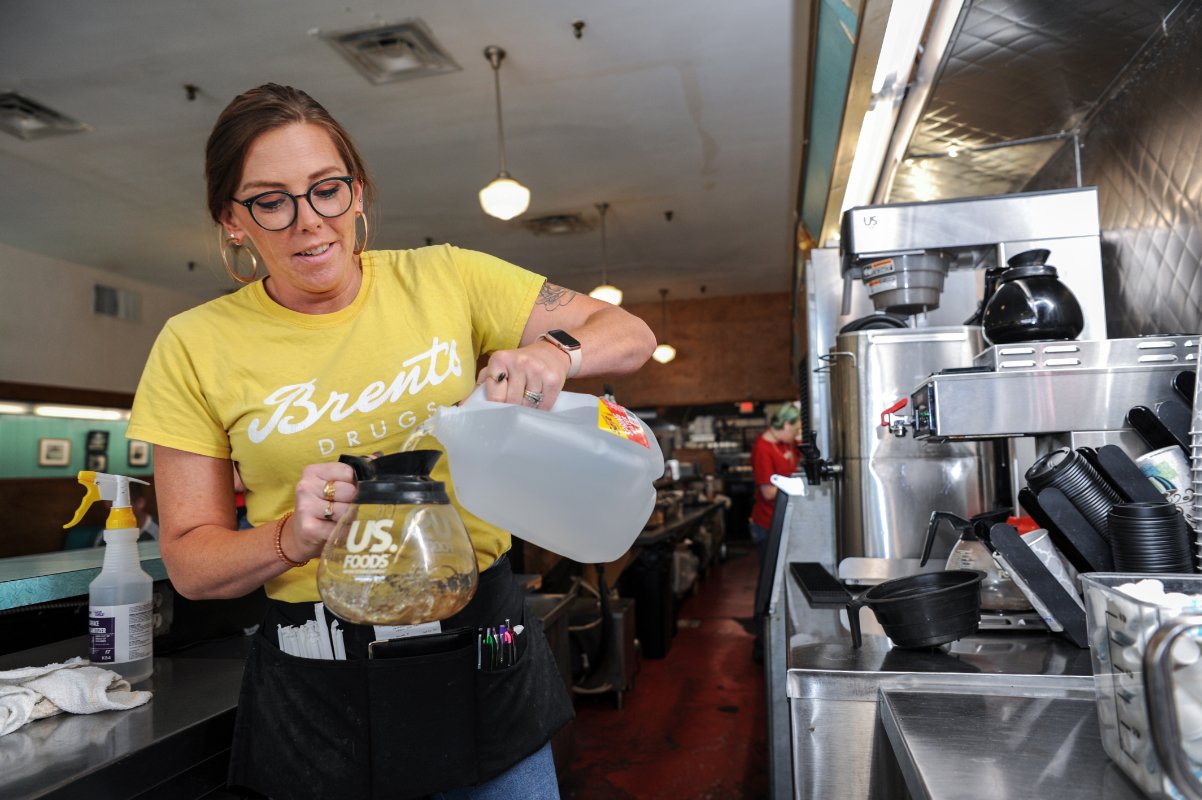
Brent’s Drugs manager Sarah Donald pours bottled water into a coffee pot during the September 2022 water crisis. (Photo © Rory Doyle)
Some Jacksonians blame local lawmakers. “There has been mismanagement through local government and leaders for so long,” said LaRose. “I don’t care if they’re blue or red, it has been mismanaged. People choose not to work with one another, and nothing gets done.”
Tierre of Johnny T’s sees the issue as primarily about money. “You can shake it how you want to, but the bottom line is, it’s economics, it’s funding,” he said.
Others, however, see racism at the root. In September 2022, the NAACP filed a complaint with the EPA under Title VI of the Civil Rights Act of 1964, citing a history of discrimination through the repeated rejection of requests for federal funds to address the problem.
“The water crisis in Jackson is just the latest example of a negligent—if not racist—pattern of underfunding basic water services for Black communities,” added Abre’ Conner, NAACP’s Director of Environmental and Climate Justice. “Our country has a longstanding history of mistreating and neglecting Black communities, putting the lives of men, women, and children at risk.”

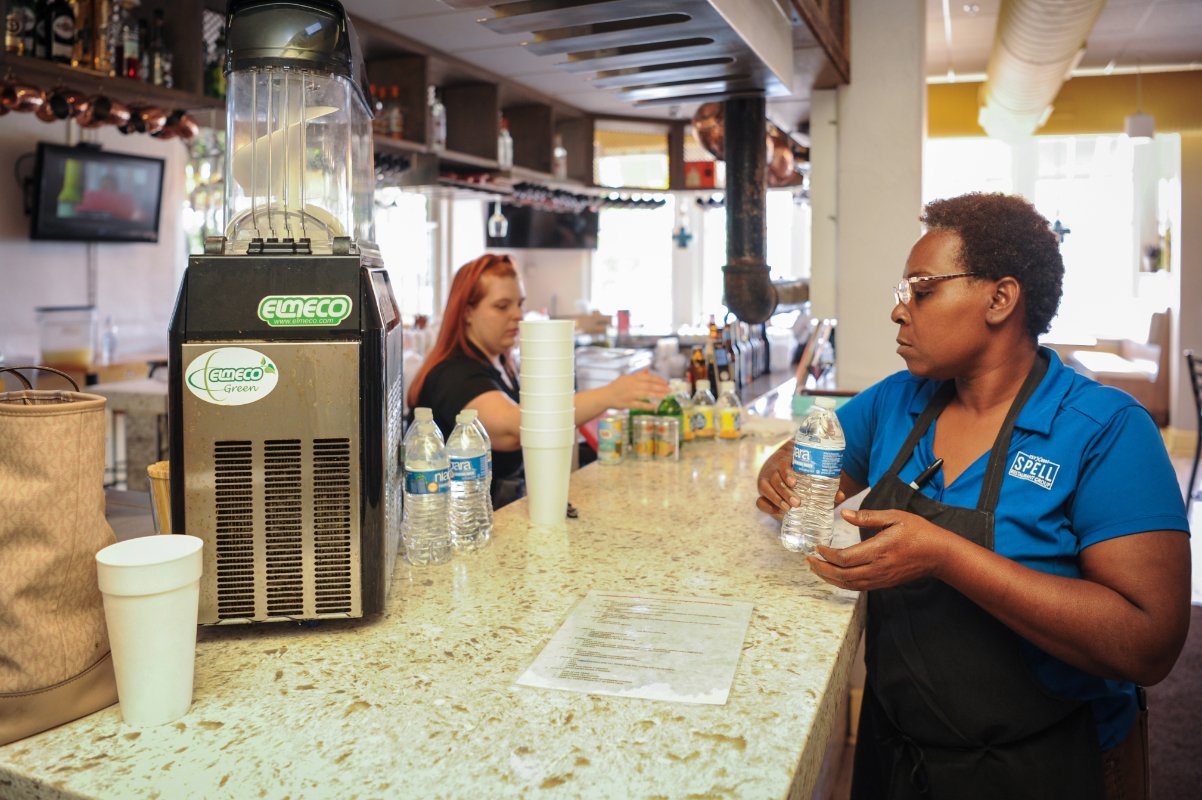
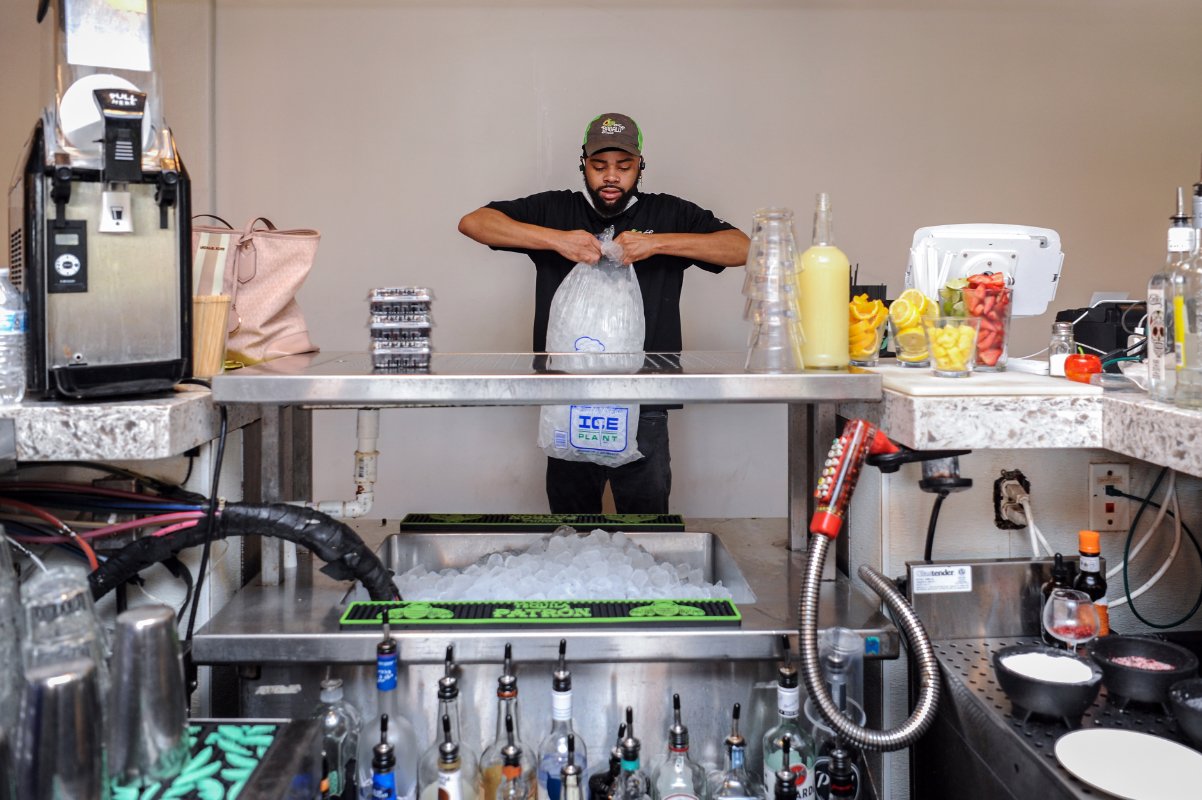











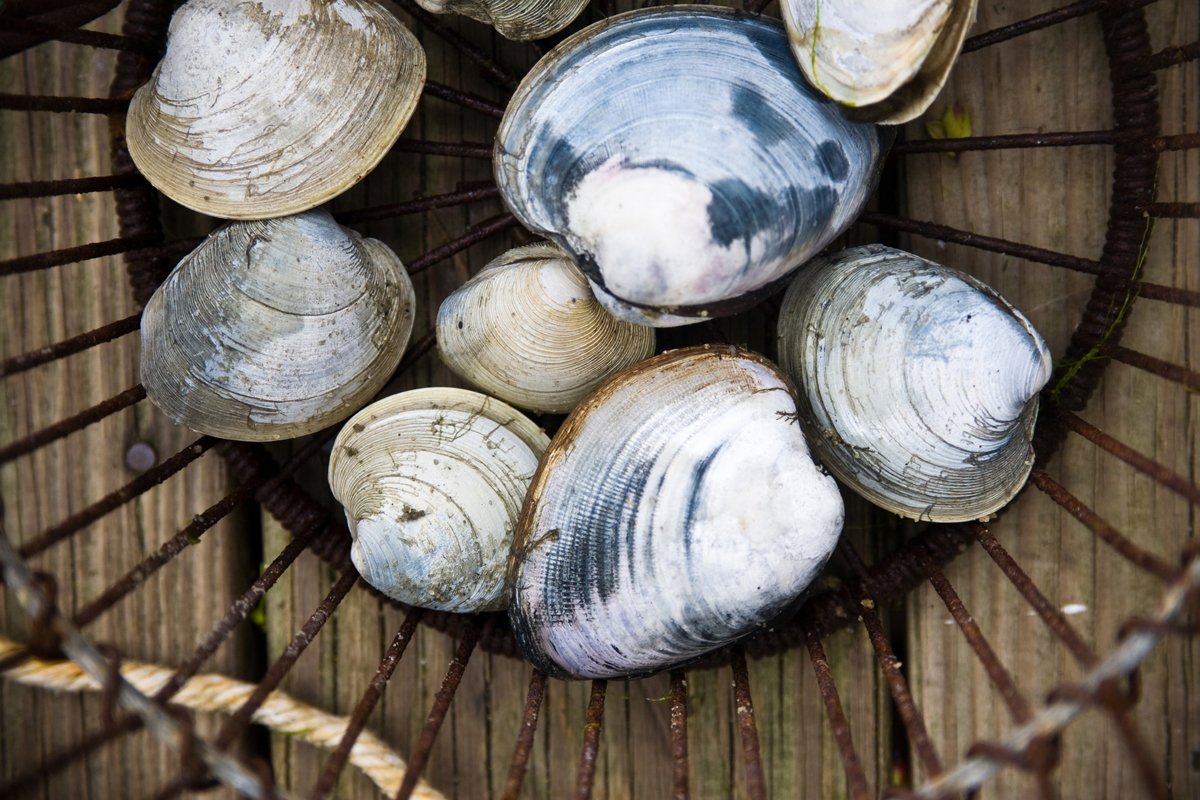


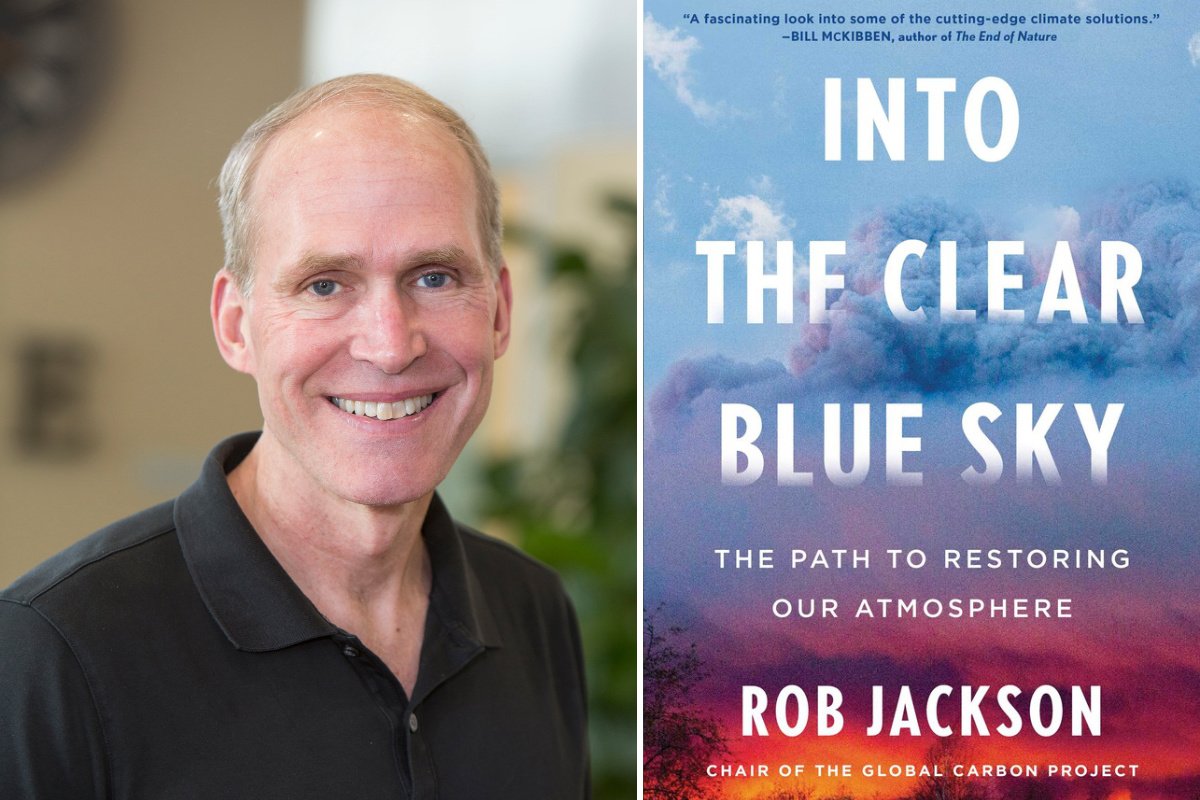
Like the story?
Join the conversation.